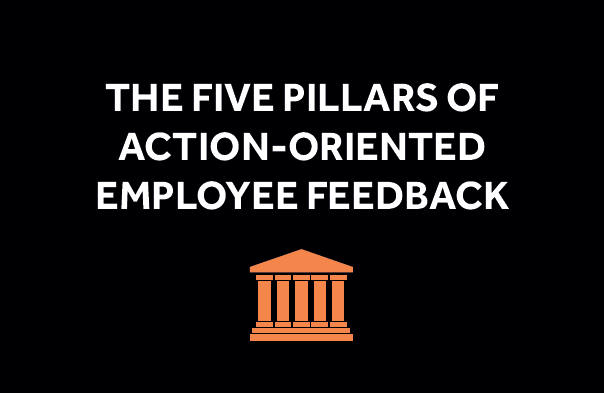Listening when you don’t want to
We all know that feeling when you have to listen to something you don’t want to hear.
Every day there seems to be bad news around. Even at work, many employees will have been subject to some kind of disruption – whether restructures, redundancies, alterations in employment terms, or changes in people, and that’s all on top of the effects of planned change programmes. It is inevitable there will be an emotional impact of these changes – sometimes fleetingly and sometimes taking much longer to recover.
What we can be certain of is that when there is change, people want to be heard. They want their objections noted, questions acknowledged, and ideas recognised. In fact, being heard helps people move through the change curve and emerge the other side with renewed engagement and energy.
Conversely, when we feel like we’re ‘yelling into the void’, not being heard, and not able to raise our objections it is frustrating, upsetting, and sometimes disrespectful. And in those circumstances, it is highly unlikely that people will put their best effort into their work and begin to actively explore other options.
In a world where the only constant is change, listening, learning, unlearning, relearning, and adapting are critical.
But how do employers listen better to employees when the news is bad, and the employee vibe is worse? And why, when companies are going through change programmes do leaders postpone or even cancel employee listening efforts?
There are a few common, and perfectly natural reasons…
“We don’t want to hear bad news”
You can be certain that people are talking about the impacts of change. A few brave souls might ask questions in ‘townhall’ meetings, but for most those conversations are taking place with their friends and colleagues. But cancelling employee listening activities (or postponing until the change is ‘over’) could send out the message to your employees that you’re not interested in their opinion or feelings. Maintaining – and even ramping up – your listening efforts through change gives people the reassurance that you are paying them attention.
“We don’t want to ruin our progress graph”
Quite often we see engagement graphs which show a constant upwards trajectory, and no-one wants to ruin those – especially if your variable pay is linked to that graph in any way. But this is very unlikely to be the last change programme you will experience and one critical factor to how well you cope with change is resilience. Measuring engagement through change allows you to understand, support and build resilience for the long term. And the more that people feel heard and acknowledged, the more they will share their ideas and continue to give you their best even through uncertain times.
“We don’t know what to do that could help”
Leading change is a difficult job. Quite often you’re trying to put on a brave face even when you are impacted yourself. But listening and paying attention is an important and conscious action to take. You can focus questions on things you can control at whatever point of the change you are in – or example whether people understand and support the reasons for change, whether they are hearing enough from senior leaders, whether communications are frequent enough, and so on. And the quicker negative sentiment is acknowledged by leadership and where possible acted upon, the more your people feel heard and cared about, and less likely to leave.
Talking to line managers and or colleagues, or anyone in authority who will listen is always important, but so is the engagement survey as a useful channel to raise issues when things are not right and need improvement.
We live in complex times, and no single leader can know all the answers, which is where the power of the collective intelligence of your workforce can be literally, a game-changer. Employee listening through change can help you harness the experience and ideas of your colleagues – which has benefits for both parties.
When people have more to say, especially when you don’t want to hear it, we suggest you should be listening more. Here are three things for you to keep front of mind:
- Think twice before cancelling or postponing your employee listening programmes. Cancelling them can feel like the equivalent of putting your fingers in your ears which could exacerbate morale.
- Adapt your listening approach during change programmes. Focus on things both you and your colleagues can control and actions you will be able to take. Adapt your engagement survey questions and perhaps introduce more team-based listening events, ensuring people can individually and collectively reflect without fear of reprisal.
- Ramp up your listening efforts. If you’re only listening once a year through an annual survey, then you’ll miss critical points in the change curve and the ability to quickly try new things or adapt, and understand if they’ve had an impact.
Listen better. Act faster. Drive engagement & effectiveness.
To find out more about the benefits of Peachy Mondays for your organisation please get in touch today.
If you’ve found this article helpful, please sign up to our newsletter to stay informed of the latest insights from Peachy Mondays.
Related Posts
Categories
- Case Study (13)
- Change and transformation (21)
- Connectedness (4)
- Culture (17)
- Design (10)
- Diversity and Inclusion (1)
- Effectiveness (16)
- Employee engagement (60)
- Employee experience (43)
- Employee Feedback (51)
- Employee Wellbeing (1)
- Events (10)
- Financial Wellbeing (1)
- Happiness (4)
- Internal Communications (10)
- News (24)
- Onboarding (1)
- Organisational Effectiveness (18)
- Uncategorized (3)




